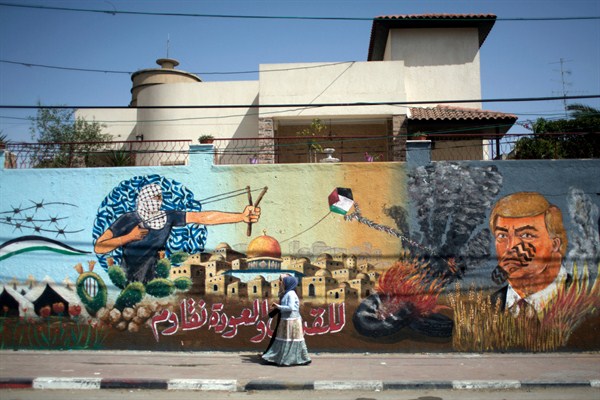Despite repeatedly announcing his intention to present a bold, sweeping plan to solve the Israeli-Palestinian conflict, U.S. President Donald Trump continues to keep everyone waiting. If he ever does present his plan, it is set to backfire, for several reasons.
For one thing, the Trump administration has been shunned by Palestinians since it recognized Jerusalem as the capital of Israel last December. Palestinians were angered by the move, arguing that the U.S. government violated its role as mediator and sponsor of the peace process by adopting Israel’s position on Jerusalem. Palestinian leaders have taken the unprecedented step of halting all contacts with U.S. government officials in order to discourage the administration from presenting a peace plan that they fear will be just as biased. That antipathy will only deepen if the plan is released.
For another, key Arab countries, contrary to dramatic leaks of anti-Palestinian statements amplified by the Israeli government and right-wing media in Israel, are opposed to these new hard-line American positions. They don’t want the U.S. government to present its plan. That Arab position, underscored at the most recent Arab League summit in Saudi Arabia, is not so surprising. At a time when Saudi Arabia is facing challenges to its leadership in the Islamic world from both Turkey and Iran, it cannot be expected to participate in an unpopular proposal to gift Jerusalem—Islam’s second-most revered holy site—to Israel. Jordan is in a similar position. As custodian of the holy sites in Jerusalem, with an outspoken public that is predominantly Palestinian and Islamist, Jordan cannot afford to cosign any plan that legitimizes Israeli control over the city.

